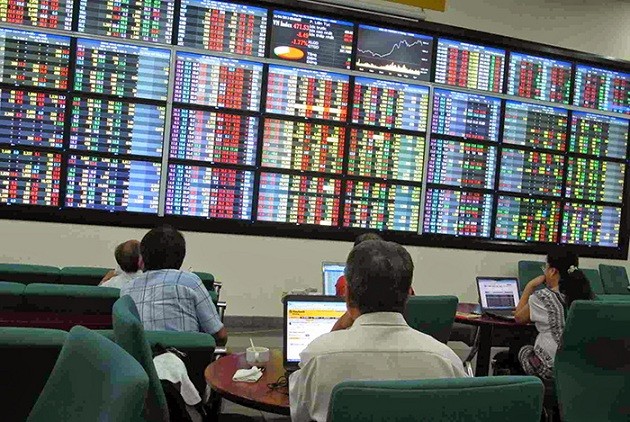(VOVWORLD) - Vietnam’s stock market is becoming an important channel for mobilizing capital. State-owned enterprises are being equitized to improve governance capacity and financial transparency.
 Vietnam stock market posts positive outlooks in 2017. Vietnam stock market posts positive outlooks in 2017. |
Do Trong Quynh, Director General of the Vietnam Construction and Import-Export Corporation (Vinaconex), tells the story of when Vinaconex was on the verge of bankruptcy.
In 2006, Vinaconex built the Cam Pha Cement Plant mostly with money from bank loans. In 2011, stronger foreign currencies and slow growth of the cement market led to losses for Vinaconex. The cement plant began losing almost 30 million USD a year, pushing Vinaconex to the verge of collapse. Raising the corporation’s charter capital saved Vinaconex from going bust and allowed it to stand firm and increase its capitalization in the stock market to almost 400 million USD.
Quynh said: “The contribution of 66 million USD by its two biggest shareholders helped Vinaconex recover and grow. Just 66 million USD saved a company with 30,000 workers from ruin, demonstrating how important capital sources are for a company going through a dangerous period.”
Vietnam’s stock market is forecast to continue to grow thanks to the government’s plans to expand equitization and withdraw state capital from state-owned enterprises.
During the first 9 months of 2017, 34 SOEs were equitized on schedule. In 2018, 64 additional enterprises will be equitized, including major corporations like Vietnam Paper Corporation and telecommunications giant Mobifone.
In 2019, only 18 are scheduled to be equitized, but most of those are blue-chip companies like the Vietnam National Coffee Corporation, the Vietnam Post and Telecommunications Group, the Vietnam National Chemical Group, and the Vietnam National Coal and Mineral Industries Holding Corporation.
Tran Van Dung, Chairman of the State Securities Commission, said: “The government has clarified the progress, direction, and rate of divestment of state capital from SOEs. The stock market is likely to heat up in the very near future.”
This year has witnessed a buying spree by foreign investors in both the securities and bond markets. Foreign indirect investment in the past 10 months surged 70% against last year. Vietnam’s capital markets will enjoy more favorable conditions to attract investment in the future due to Vietnam’s steady economic growth, controlled inflation, the private sector’s greater role in the national economy, and the improved legal framework for capital markets.